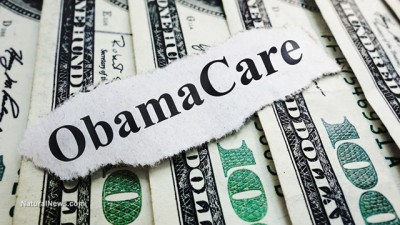Poll: Twice as Many Americans Support Obamacare as Support Trumpcare

On March 7th, U.S. President Trump said of the House Republicans’ proposed healthcare legislation: “I am proud to support the replacement plan released by the House of Representatives.” (He meant replacement of Obamacare.) That’s the Paul Ryan plan, the plan which Ryan, the Speaker of the House of Representatives, said his staff had been working on for years, and which he presented to the public on that same day, in a roll-out that was coordinated between the Republican White House and the House leadership (which likewise is Republican).
Though the White House isn’t using the term “Trumpcare” to refer to the new plan — and neither did President Obama call his plan “Obamacare” until after it became passed into law — it has been endorsed by Trump, and it will become called “Trumpcare” (not Ryancare, just as Obama’s plan is not now called “Baucuscare”) if it becomes law.
However, a Public Poilicy Polling poll issued on March 15th (a scientific sample of 808 registered voters during March 10th to 12th) found that this proposed plan is not very popular. Voters were asked “Do you support or oppose the proposal House Republicans made this week, known as the American Health Care Act?” 24% said “Support”; 49% said “Oppose”; 27% said “Not sure.”
Respondents were also asked in this same poll “Do you support or oppose the Affordable Care Act?” (that’s Obamacare); and 47% said “Support”; 39% said “Oppose; 14% said “Not sure.”
So, the ratio of Americans who support Trumpcare, as compared to those who support Obamacare, is thus 24%/47%: 51% as many support Trumpcare as support Obcamacare. Or, in other words, 1.96 times more — nearly twice — support Obamacare, than support Trumpcare (which would replace it).
Furthermore, the ratio of Americans who say they “Support” Trumpcare, 24%, is only 49% as high as is the ratio of Americans who say they “Oppose” it (47%).
This poll, therefore, indicates that Trumpcare is very unpopular.
Public Policy Polling is rated B+, by 538.
A Survey Monkey poll issued on March 14th found that “the Republican replacement bill starts out under water, with far more opposition (55 percent) than support (42 percent), and with twice as many Americans saying they are strongly opposed (38 percent) than strongly supportive (18 percent).” That poll included “2,423 adults” who were sampled March 10-13 in a novel but perhaps scientific way. Survey Monkey is C- rated by 538.
A Politico and Morning Consult poll issued on March 15th and sampling 1,983 registered voters during March 9th to 13th, found that 47% approved of Obamacare and 48% disapproved of it. It also found that 46% approve of “a proposed health care bill in Congress called the American Health Care Act that would that repeal and replace 2010 Affordable Care Act, sometimes referred to as Obamacare” and 35% disapproved of it. However, when that poll also asked “Do you approve or disapprove of the job Donald Trump is doing as President?” 52% approved and only 43% disapproved, but that is by far higher job-approval for Trump than any of the 16 polls that are recorded at Polling Report has found; it is 4% higher that the highest previous rating, which was the 48% job-approval shown in a Fox poll back in February, and most polls are considerably lower than that; so, the sample in this poll might be too poor (extraordinarily weighted with supporters of Trump’s job-performance) to consider. The Politico and Morning Consult polling operation is not yet rated by 538.
The crucial Congressional Budget Office analysis and report regarding the newly proposed U.S. healthcare plan was published on March 13th, which was after all of these polls had been done, and its findings were extremely negative. Therefore, future polling will almost certainly be showing more disapproval and less approval of this new plan than the three polls that are summarized above show.
Investigative historian Eric Zuesse is the author, most recently, of They’re Not Even Close: The Democratic vs. Republican Economic Records, 1910-2010, and of CHRIST’S VENTRILOQUISTS: The Event that Created Christianity.

